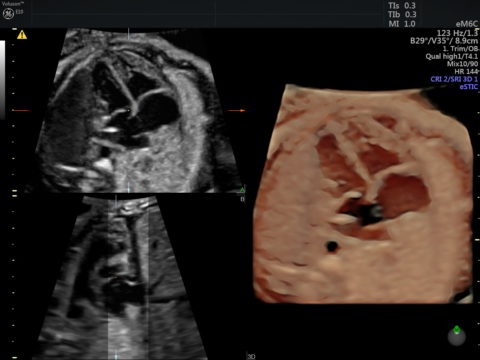The incidence of cardiac malformations is higher in the following cases:
- congenital heart disease in the family (parental, previous child, second-degree relatives - up to and including cousins)
- thicker nape fold (>2.5mm) in 11-13. weekly ultrasound screening
- 11-13. abnormal flow measured during the week (ductus venosus flow, tricuspid regurgitation)
- in the case of a high-risk combined test result, if no invasive intervention was performed
- in the case of late adopters of children (over 35 maternal age)
- who took medication harmful to the fetus during early pregnancy or who were harmed by other teratogenic substances
- who have a disease that predisposes to a cardiac malformation, e.g. diabetes, immune disease (maternal lupus/Sjögren's syndrome)
- in the case of early pregnancy harms (certain viral infections, toxic substances, medicine, alcohol, etc.).
- in multiple pregnancies (identical/monochorionic twin pregnancies)
- in pregnancies conceived with the IVF program (IVF pregnancies)
- in case of fetal heart rhythm disorder
- other developmental abnormalities were detected during a general fetal ultrasound examination, or a suspected cardiac malformation arose
- in case of suspected chromosomal abnormality
- other deviation determined by ultrasound: e.g. abnormally high or low amniotic fluid, abnormal fetal growth, fluid in the chest, around the heart
- for anyone who wants to rule out developmental abnormalities in their fetus as reliably as possible

